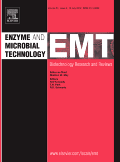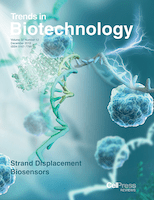
BIOTECHNOLOGY AND BIOPROCESS ENGINEERING
Scope & Guideline
Elevating Knowledge in Biotechnology and Bioengineering
Introduction
Aims and Scopes
- Bioprocess Optimization:
Research aimed at improving the efficiency and yield of bioprocesses, including fermentation and enzyme production, through various optimization techniques. - Synthetic Biology:
Exploration of synthetic biology applications, including the engineering of microorganisms and the design of novel biological systems for specific functions. - Bioproduct Development:
Focus on the production of high-value bioproducts such as pharmaceuticals, biofuels, and biopolymers from biological materials or through biotransformation. - Environmental Biotechnology:
Studies aimed at utilizing biotechnological methods for environmental remediation, waste treatment, and sustainable practices in agriculture and industry. - Analytical and Biochemical Techniques:
Development and application of advanced analytical methods for characterizing biological processes, metabolic pathways, and product identification. - Medical Biotechnology:
Research involving the development of biotechnological solutions for medical applications, including vaccine development, drug delivery systems, and gene therapy.
Trending and Emerging
- Metabolic Engineering:
There is an increasing trend in research focused on metabolic engineering techniques to enhance the production of valuable metabolites, indicating a shift towards precision bioprocessing. - Nanobiotechnology:
Emerging studies on the application of nanotechnology in bioprocesses, such as drug delivery and biosensing, reflect a growing interest in integrating nanoscale materials with biological systems. - Cell-free Systems:
Research on cell-free systems for protein synthesis and biocatalysis is gaining traction, showcasing innovative approaches to bypass traditional cell-based limitations. - CRISPR and Gene Editing Technologies:
The application of CRISPR and other gene editing technologies in improving microbial strains and bioprocesses is increasingly prevalent, signifying a transformative approach in biotechnology. - Sustainable Bioprocesses:
An emphasis on sustainability and the development of eco-friendly bioprocesses, including bioremediation and renewable resource utilization, is becoming more prominent. - Artificial Intelligence in Biotechnology:
The integration of AI and machine learning techniques to optimize bioprocesses and predict biological outcomes is emerging as a significant trend in recent research.
Declining or Waning
- Traditional Fermentation Techniques:
Research specifically centered on conventional fermentation methods without the incorporation of modern biotechnological advancements is becoming less common. - Natural Product Isolation:
Studies focused solely on the isolation of natural products with limited application or analysis are declining in favor of more integrated approaches that combine isolation with functional analysis. - Non-engineered Microbial Strains:
Publications centered on the use of non-engineered microbial strains for bioprocessing are decreasing, as there is a growing trend towards the use of genetically modified organisms for enhanced performance. - Basic Biochemical Pathway Studies:
Research that primarily investigates biochemical pathways without subsequent application or engineering efforts is less frequently seen, as applied research takes precedence. - Conventional Waste Treatment Processes:
Studies focusing solely on traditional waste treatment methods are less common, with a shift towards innovative, biotechnologically advanced solutions.
Similar Journals

METABOLIC ENGINEERING
Catalyzing Breakthroughs in Biosynthetic ResearchMETABOLIC ENGINEERING, published by Academic Press Inc. Elsevier Science, is a renowned journal in the fields of Applied Microbiology, Biotechnology, and Bioengineering. With an impressive impact factor and ranking in the top quartile (Q1) across its specialized categories for 2023, this journal facilitates the dissemination of cutting-edge research focused on metabolic pathways and engineering methods that optimize biological systems for various applications. Since its inception in 1999, it has established itself as a critical resource for academics and industry professionals seeking innovative solutions to complex biosynthetic challenges. The journal invites original research, reviews, and technical notes that advance the understanding and utilization of metabolic processes; thus, it plays a pivotal role in bridging laboratory discoveries with practical applications. Although the journal does not offer open access, its high visibility and rigorous peer-review process ensure that it remains a vital source of knowledge and inspiration for researchers and students alike.

BIOTECHNOLOGY AND BIOENGINEERING
Unlocking Potential in Biotechnology and BioengineeringBIOTECHNOLOGY AND BIOENGINEERING, published by Wiley, is a leading journal in the domains of applied microbiology, biotechnology, and bioengineering. With an ISSN of 0006-3592 and E-ISSN of 1097-0290, this journal has established itself as an essential resource for researchers, professionals, and students aiming to advance their knowledge and stay updated on cutting-edge innovations and methodologies in biotechnology. The journal has a commendable impact factor, and it is ranked in the second quartile (Q2) across multiple categories for 2023. This positions it favorably among its peers, underscoring its significance in the scientific community; for example, it ranks 23rd out of 127 in the field of Applied Microbiology and Biotechnology. As a hub of critical research findings and technological advancements, BIOTECHNOLOGY AND BIOENGINEERING invites contributions that push the boundaries of biotechnological applications, fostering a deeper understanding and development of sustainable solutions to current global challenges.

BioTech
Catalyzing Collaboration Across Scientific DisciplinesBioTech is a forward-thinking academic journal published by MDPI, specializing in the dynamic fields of applied microbiology, biotechnology, biochemistry, bioengineering, and biomedical engineering. Established for promoting impactful research from 2021 to 2024, this journal aims to bridge the gap between laboratory findings and practical applications, serving as a vital resource for researchers, practitioners, and students alike. With its Open Access model, BioTech ensures that groundbreaking innovations are freely available to the global community, fostering collaboration and knowledge transfer across disciplines. In the 2023 rankings, BioTech holds a strong position in Q2 and Q3 quartiles across various categories, reflecting its commitment to high-quality research output. Being indexed in renowned databases, the journal enhances its visibility and reach, making it a preferred platform for sharing transformative ideas and discoveries in biotechnology and related domains. Set against the backdrop of Switzerland’s thriving research environment, BioTech is poised to become an essential resource in the rapidly evolving landscape of life sciences.

Biochemical Engineering Journal
Shaping the Future of Biomedical Engineering ResearchBiochemical Engineering Journal, published by Elsevier, is an esteemed platform dedicated to advancing research in the fields of bioengineering, biomedical engineering, biotechnology, and environmental engineering. This journal, with ISSN 1369-703X and E-ISSN 1873-295X, has carved a niche for itself since its inception in 1998, boasting a commendable Q2 category ranking in multiple pertinent disciplines as of 2023. The journal's strong impact factor reflects its influence, with Scopus rankings placing it in the top quartiles across relevant fields including Environmental Engineering and Bioengineering. With a focus on both fundamental and applied research, it aims to inform and inspire academia and industry alike by disseminating high-quality studies, reviews, and innovative methodologies. Researchers and professionals are encouraged to explore this reputable journal to remain at the forefront of emerging trends and technologies in biochemical engineering.

ENZYME AND MICROBIAL TECHNOLOGY
Unleashing the Power of Enzymes and MicroorganismsENZYME AND MICROBIAL TECHNOLOGY, a premier journal published by Elsevier Science Inc, serves as a pivotal platform for researchers and professionals dedicated to exploring the dynamic intersections of microbiology, biochemistry, and bioengineering. With a rich publication history dating back to 1979 and converging until 2024, this journal has established itself within the Q2 quartile rankings across multiple categories, including Applied Microbiology and Biotechnology, Biochemistry, Bioengineering, and Biotechnology, highlighting its influential role in advancing scientific discourse. It holds impressive Scopus rankings, where it is recognized in the 79th percentile for Applied Microbiology and Biotechnology and ranks favorably in related fields, making it a valuable resource for academic and industrial researchers looking to stay abreast of the latest developments. Although it does not currently offer Open Access options, ENZYME AND MICROBIAL TECHNOLOGY remains an essential read for anyone invested in the biotechnological applications of enzymes and microorganisms.

Research Journal of Biotechnology
Empowering scholars with open access to cutting-edge studies.Research Journal of Biotechnology is a premier publication dedicated to advancing the field of biotechnology through the dissemination of impactful research articles. Published by Research Journal Biotechnology in India, this journal operates under an Open Access model, facilitating unrestricted access to high-quality research for researchers, professionals, and students worldwide. With an ISSN of 2278-4535 and an E-ISSN of 2278-4535, the journal aims to serve as a comprehensive platform for innovative studies in Applied Microbiology and Biotechnology, Bioengineering, and Biotechnology. Despite its current Q4 quartile ranking in these categories, the journal aspires to extend its influence and visibility in the academic community, aiming for greater impact in the future. The journal features research articles that span a wide array of topics in biotechnology, fostering a collaborative and knowledge-rich environment for national and international scholars. We invite you to explore, contribute to, and engage with the expanding landscape of biotechnological research through the Research Journal of Biotechnology.

ELECTRONIC JOURNAL OF BIOTECHNOLOGY
Bridging Science and Practice for a Sustainable FutureThe Electronic Journal of Biotechnology is a premier Open Access journal published by Pontificia Universidad Catolica de Valparaiso, Chile, dedicated to advancing the fields of applied microbiology and biotechnology. With its inception in 1998 and an unwavering commitment to sharing knowledge, the journal has garnered a respectable ranking within the Q3 quartile for both its biotechnology and applied microbiology categories as of 2023, reflecting its significance in the academic community. Researchers and professionals will find its editorial rigor complemented by a robust platform for disseminating innovative findings, fostering collaboration, and driving forward biotechnology discussions. Given its inclusive approach, having transitioned to Open Access in 2014, the journal ensures that research is accessible to a global audience, making it a valuable resource for students, academics, and industry practitioners alike. Through the publication of original research, reviews, and critical insights, the Electronic Journal of Biotechnology aims to bridge the gap between scientific discovery and practical application, ultimately contributing to advancements in health, agriculture, and environmental sustainability.

JOURNAL OF INDUSTRIAL MICROBIOLOGY & BIOTECHNOLOGY
Exploring Innovative Solutions for a Sustainable FutureJOURNAL OF INDUSTRIAL MICROBIOLOGY & BIOTECHNOLOGY, published by Oxford University Press, is a vital resource for researchers and professionals actively engaged in the fields of applied microbiology, biotechnology, and bioengineering. With an ISSN of 1367-5435 and E-ISSN of 1476-5535, this journal has established itself as a leading platform for disseminating innovative research findings and advancing knowledge in industrial microbiology since its inception in 1996. As of 2023, it is classified in the Q2 quartile across multiple categories including Applied Microbiology and Biotechnology, Bioengineering, and Medicine, underscoring its significance in the academic community. Notably, it ranks 26th of 127 in Applied Microbiology and Biotechnology, placing it in the 79th percentile, indicative of its high impact and influence. Although it does not currently offer Open Access, it remains a key outlet for high-quality scholarly articles that align with the objectives of improving industrial practices through biotechnological applications. For those interested in the latest developments and methodologies within the realm of applied microbiology and biotechnology, this journal serves as an indispensable reference.

TRENDS IN BIOTECHNOLOGY
Exploring Innovations in BioengineeringTRENDS IN BIOTECHNOLOGY, published by CELL PRESS, stands as a premier journal since its inception in 1983, focusing on the dynamic and ever-evolving fields of bioengineering and biotechnology. With a notable impact factor and ranking in the top quartile (Q1) of its categories for 2023, this journal is recognized for its contribution to advancing scientific knowledge, boasting a Scopus rank of #5/311 in Biotechnology and #5/162 in Bioengineering, placing it in the 98th and 97th percentiles, respectively. Although it does not operate under an open access model, TRENDS IN BIOTECHNOLOGY ensures a rigorous peer-review process that provides a platform for high-quality research that influences both academic and industrial advancements. The journal's objectives encompass the dissemination of cutting-edge research findings, reviews, and insights that foster innovation in biotechnological applications, making it an invaluable resource for researchers, professionals, and students alike. With its broad scope across the intersection of biosciences and technology, TRENDS IN BIOTECHNOLOGY continues to lead discussions and developments that shape the future of the biotechnology landscape.

APPLIED BIOCHEMISTRY AND BIOTECHNOLOGY
Transforming Ideas into Impactful ApplicationsApplied Biochemistry and Biotechnology is a leading journal published by Springer, dedicated to advancing research in the interdisciplinary fields of biochemistry, biotechnology, and applied microbiology. Established in 1981, this peer-reviewed journal covers a wide range of topics that encompass innovative techniques, methodologies, and applications of biochemistry and biotechnology in medicine, environmental engineering, and molecular biology. With a Q2 ranking in several categories and an increasing impact factor, the journal demonstrates significant influence and credibility within the scientific community. While traditionally subscription-based, the journal offers avenues for open access through selective agreements, making high-quality research accessible to a broader audience. Researchers, professionals, and students alike will find Applied Biochemistry and Biotechnology to be an invaluable resource for the latest developments and applications in biochemistry and its related fields, aiding in the quest for sustainable solutions and novel biotechnological advancements.